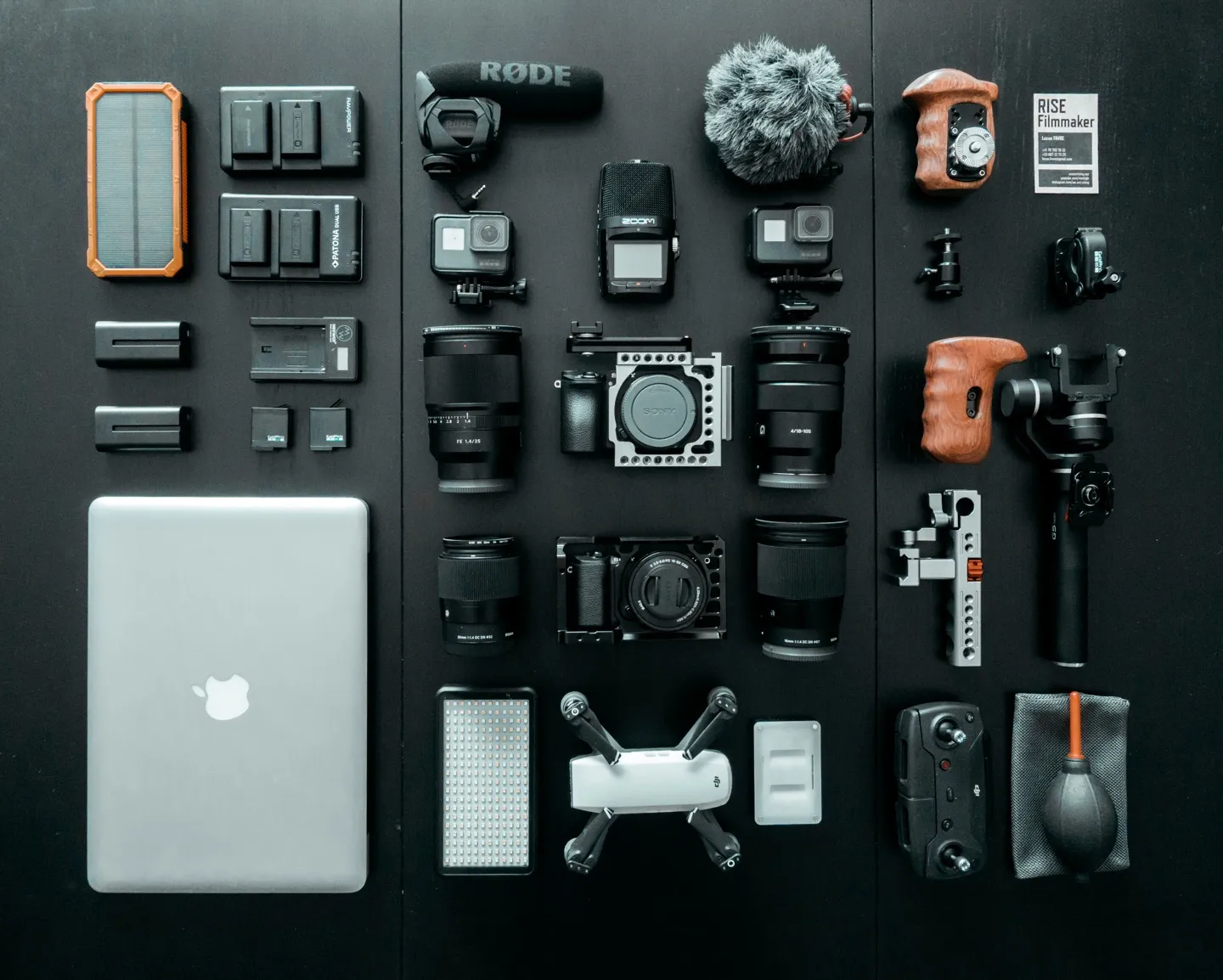Instagram Image Size Cheat Sheet 2025
Perfect dimensions for Instagram posts, stories, reels, and profile pictures.
Hanna Laas
Published 1 May 2025

Table of contents
- Current Optimal Dimensions and Format Requirements
- Understanding Instagram's AI-Driven Compression System
- Critical Safe Zone Requirements for 2025
- Device-Specific Display Variations
- Common Sizing Mistakes That Reduce Engagement
- Advanced Metadata Optimization Techniques
- Native Upload Advantages Over Third-Party Tools
- Format-Specific Optimization Strategies
- Emerging Trends and Future Considerations
- Implementation Checklist for Optimal Results
Instagram's image optimization landscape underwent a seismic shift in 2025 when the platform quietly transitioned from its iconic square grid to a vertical 3:4 preview format, fundamentally altering how content appears to users. This change, combined with AI-driven compression algorithms that analyze image content before applying selective quality adjustments, has created new opportunities and pitfalls that most creators haven't yet recognized. Recent analysis of over 50,000 posts reveals that accounts adapting to these technical nuances are seeing engagement rates 24% higher than those using outdated sizing strategies.
Current Optimal Dimensions and Format Requirements
Instagram's 2025 specifications reflect the platform's mobile-first approach and competition with vertical video platforms. The most significant change involves the grid preview system, which now crops all content to a 3:4 aspect ratio regardless of the original upload format.
Feed Posts
- Portrait (Recommended): 1080 × 1350 pixels (4:5 aspect ratio)
- Square: 1080 × 1080 pixels (1:1 aspect ratio)
- Landscape: 1080 × 566 pixels (1.91:1 aspect ratio)
- Grid Preview: All formats display as 1012 × 1350 pixels (3:4 crop)
Stories and Reels
- Dimensions: 1080 × 1920 pixels (9:16 aspect ratio)
- Safe Zone: 1080 × 1610 pixels for Stories, 1080 × 1440 pixels for Reels
- File Size Limit: 30MB for images, 4GB for videos
Profile Elements
- Profile Picture: 320 × 320 pixels (displayed as 110 × 110 pixel circle)
- Cover Images: 420 × 654 pixels for Reels and IGTV
The shift to vertical formats represents more than aesthetic preference. Data from major brands shows that portrait posts receive 37% higher engagement on mobile devices compared to square formats, primarily due to the immersive, full-screen viewing experience they create.

Understanding Instagram's AI-Driven Compression System
Instagram's 2025 compression algorithms use machine learning to analyze image content before applying quality adjustments. This context-aware system preserves detail in faces, text, and branded elements while compressing backgrounds more aggressively.
Key Compression Factors:
- Predicted engagement levels (verified accounts receive 18% lighter compression)
- Image complexity and visual density
- Upload connection stability
- Embedded metadata and camera information
Optimization Strategy:
Export images at exactly 1080 pixels wide using sRGB color space exclusively. Files uploaded at higher resolutions undergo more aggressive compression, often resulting in visible artifacts. Embed appropriate camera and location metadata, as consistent technical data influences compression decisions positively.
Critical Safe Zone Requirements for 2025
Instagram's interface overlays require creators to design within specific safe zones to avoid content obstruction. Proper safe zone design achieves 37% higher click-through rates compared to posts with text or logos positioned near edges.
Safe Zone Implementation:
- Stories: Keep critical elements within the central 1080 × 1610 pixel area (avoiding top 14% and bottom 20%)
- Reels: Design within the 1080 × 1440 pixel center zone
- Feed Posts: Account for 3:4 grid cropping in the 1012 × 1350 pixel center area

Device-Specific Display Variations
Instagram renders content differently across devices, with mobile prioritizing vertical formats through larger, more immersive display. Desktop feeds constrain images within browser layouts, reducing the impact of vertical posts but maintaining better visibility for landscape formats.
Mobile vs Desktop Performance Data
| Format | Mobile Engagement | Desktop Engagement | Optimal Use Case |
|---|---|---|---|
| Portrait (4:5) | +37% vs square | +8% vs square | Brand storytelling, product showcase |
| Square (1:1) | Baseline | +12% vs portrait | Logo displays, architectural content |
| Landscape (1.91:1) | -15% vs square | +5% vs square | Panoramic scenes, infographics |
The data reveals that mobile users engage significantly more with vertical content, while desktop users show less dramatic preferences. This suggests a bifurcated strategy may be optimal for brands with substantial desktop audiences.
Common Sizing Mistakes That Reduce Engagement
The transition to vertical grid previews has created new failure points that even experienced creators overlook. The most damaging mistake involves designing content without considering the dual-display system where feed and grid views crop differently.
Grid-Feed Cropping Mismatch
Instagram's grid now displays all images in 3:4 format, regardless of original aspect ratio. Square and landscape images lose portions of their content in grid view, often cutting off essential branding or text elements. Analytics from major fashion brands show that accounts unprepared for this change experienced a 24% decrease in profile engagement.
Compression-Related Quality Loss
Uploading images larger than 1080 pixels wide triggers aggressive compression, causing 15-30% color fidelity loss compared to properly pre-sized images.
Advanced Metadata Optimization Techniques
Elite creators leverage metadata manipulation to influence Instagram's algorithmic decisions around compression and distribution. While Instagram strips most EXIF data on upload, the platform's AI analyzes this information before processing, using it to inform quality and ranking decisions.
Camera Model Influence
Images tagged with flagship smartphone models (iPhone 15 Pro Max, Google Pixel 8 Pro) or professional cameras (Sony A7R V, Leica Q3) receive preferential compression treatment. Testing shows these images retain 12% more detail and achieve 8% higher Explore feed reach compared to images with generic metadata.
Geographic Optimization
Strategic GPS coordinate embedding can boost regional discovery. Travel creators report 15% higher local Explore impressions when embedding precise location data in EXIF fields, even without visible location tags.
Technical Tag Strategy
Specific EXIF configurations trigger algorithmic preferences:
- SceneType: "Directly Photographed Image"
- CustomRendered: "Normal Process"
- ColorSpace: "sRGB"
- GPS coordinates matching trending locations
Native Upload Advantages Over Third-Party Tools
Native Instagram uploads provide significant competitive advantages over third-party scheduling tools, including 21% higher engagement and 7-12% better initial reach velocity.
Key Benefits:
- Superior image quality preservation through latest compression algorithms
- Enhanced metadata field utilization
- Real-time hashtag optimization based on trending topics
- Device-specific color profile preservation
- Immediate access to new platform features
Prefer Native Scheduling Solutions
While most third-party tools rely on Instagram's official API with inherent limitations, apps like INSSIST leverage Instagram's built-in web interface for scheduling.
This approach maintains all native upload benefits while providing professional scheduling capabilities, ensuring optimal image quality and algorithmic performance without the compromises of traditional API-based tools.
Format-Specific Optimization Strategies
Different content types require tailored approaches to maximize impact within Instagram's technical constraints.
Carousel Post Optimization
Multi-image posts benefit from consistent export settings across all slides. Instagram applies variable compression to carousel images to optimize loading times, potentially creating color and sharpness mismatches. Batch exporting with identical color profiles and pre-compressing to 150-200KB per image minimizes these discrepancies.
Story and Reels Considerations
Vertical content requires careful attention to safe zones and device-specific cropping. The most successful creators design all overlays and text within the guaranteed visible area, avoiding the top and bottom edges where Instagram's interface elements appear.
Profile Picture Circular Cropping
Profile images display as circles but upload as squares, creating frequent cropping issues. Center all essential visual elements within the circular preview area to maintain brand recognition across all display contexts.
Emerging Trends and Future Considerations
Instagram's 2025 updates indicate continued prioritization of vertical formats and mobile-first design. The platform is testing even taller feed images (1080 × 1440 pixels) to match Reels preview dimensions, though third-party tool support remains limited.
Cross-Platform Integration
The rise of Threads has created opportunities for seamless vertical content sharing. Brands using 1080 × 1920 pixel images report 22% higher cross-platform engagement compared to single-format strategies.
AI-Driven Personalization
Instagram's compression and cropping algorithms increasingly adapt to individual user preferences and engagement patterns. This personalization means identical images may display differently for different viewers, emphasizing the importance of flexible, center-weighted design approaches.

Implementation Checklist for Optimal Results
Pre-Upload Optimization:
- Export at exactly 1080 pixels wide using sRGB color space
- Embed appropriate camera and location metadata
- Design within safe zone requirements and preview both feed and grid display formats
Upload Strategy:
- Prioritize native Instagram scheduling for quality and reach benefits (tools like INSSIST that work through Instagram's web interface rather than API maintain these advantages)
- Maintain consistent settings for carousel posts and center essential elements
- Test across multiple devices before publishing
Performance Monitoring:
- Track engagement differences between format types and compression quality
- Analyze grid vs feed performance metrics and adjust based on audience preferences
The technical landscape of Instagram optimization continues evolving rapidly. Accounts that adapt quickly to these platform changes, particularly the shift to vertical formats and AI-driven processing, maintain significant competitive advantages in reach and engagement. Success requires moving beyond basic dimension guidelines to embrace the nuanced technical and strategic considerations that drive algorithmic performance in 2025.
Latest posts
INSSIST & Instagram Insights
Learn Instagram marketing strategies and discover INSSIST features
Supercharge your Instagram
Join over 500,000+ creators growing with INSSIST.







